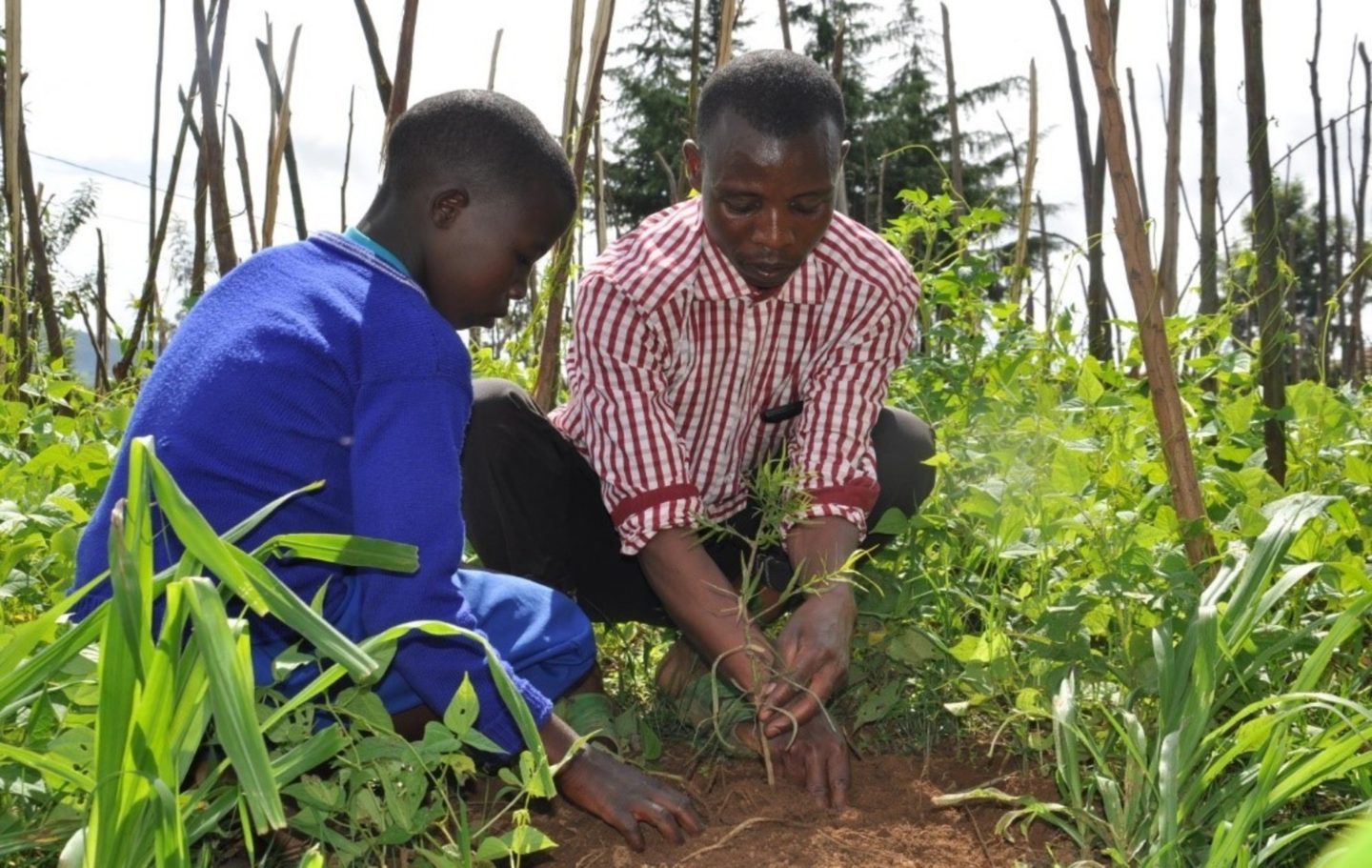
Children from the English speaking Baptist High School, BHS Buea in Cameroon were inspired by the PACE Kit and motivated to take action on the environment and against climate change. The Kit discusses the use of single use plastic, biodegradable alternatives and the relative merits and implications of each. Clearly one practice that is harming wildlife and destroying the environment is excessive use of plastics.
Tree nurseries typically use seedling bags made from black plastic and the children in Buea noted this and also that the government banned the use of plastic bags in Cameroon, but that little or nothing changed due to the lack of alternatives for people to use. After receiving the PACE Kit they were excited to set up a tree nursery using locally made biodegradable seedling pots, made from rattan, palm and coconut husks.
Teachers in adjacent French speaking regions of Cameroon followed suit, supporting pupils to set up eco-friendly tree planting in schools, but also establishing a demonstration farm using Conservation Agriculture. They used Action sheets in the Kit that explain how other aspects of a plant nursery, garden or small farm can be made environment friendly and super productive.
Conservation Agriculture is important because it maintains soil fertility and increases farm output, meaning that farmers don’t have to keep felling forest in search of productive land. A win-win scenario for communities, wildlife and the forests.
Penny Fraser, PACE Co-Ordinator said: “Our partners in Cameroon belong to a network of PACE users planting trees and reducing deforestation across Africa: from Nigeria, Uganda, Rwanda, Kenya, Zambia, to Tanzania and Zimbabwe – increasing tree cover is one concrete way to control climate change. We are so proud of our inspired young PACE partners, making a difference where it really counts.”
In Rwanda the Rwanda Wildlife Conservation Association (RWCA) is doing fantastic work mobilising youth. RWCA was set up by Tusk Conservation Award finalist Olivier Nsengimana, concerned about the Grey Crowned Crane, which is a symbol of wealth and longevity in Rwandan culture, yet sadly is itself seriously threatened. Rwanda is a small country with high population density and extreme poverty that causes great competition between people and wildlife. RWCA uses a one health approach to improve livelihoods and support conservation of Rwandan Wildlife.
In its work to engage communities with conservation, RWCA set up a network of community youth environment clubs – starting with two – and then with a Tusk grant added nine more, close to Rugezi Marsh and Akagera National Park. Using PACE materials as a guide they have learned how soil is formed, lost, and how to take care of it.
Jean Ferus Niyomwungeri, RWCA Community Conservation Officer told us more: “They learned that to flourish it must be fed, nurtured and then there are some materials that can be broken down and become part of the soil and others which are not biodegradable, these can negatively affect the soil. With the practical examples, they went into their village to clean and to collect non-biodegradable material. This was a good example for kids, but also for the whole community, as it was in the business centre people were surprised to see children collecting plastic bags. This was a good opportunity for the kids and mentors to interact and explain to communities around why they are doing so.”
Conservation Agriculture has been introduced by making a demonstration kitchen garden at the home of one member in each club. They used sacks filled with soil and manure to show how healthy vegetables can be grown easily in even small spaces – reducing the need to cut down the forest.
The environment clubs have also planted indigenous trees. Seven clubs together with their families planted 1,178 around the buffer zone of Rugezi Marsh. The children continue to manure and weed the seedlings, which as trees will become roosting habitat for Grey Crowned Cranes, as well as helping to maintain healthy soil and of course, supporting the global fight against climate change.
